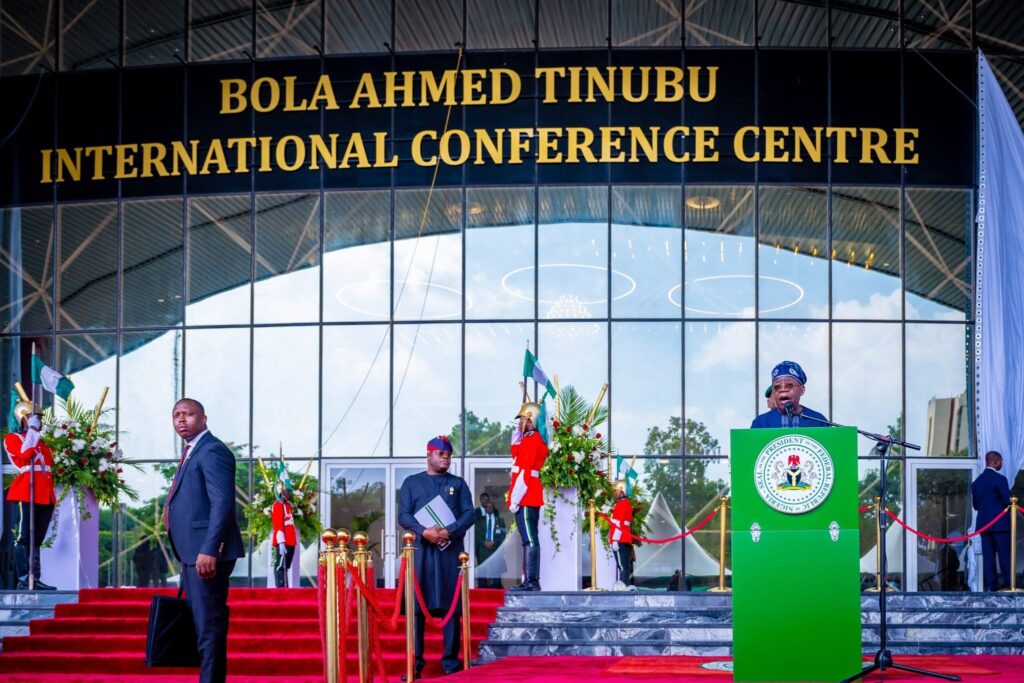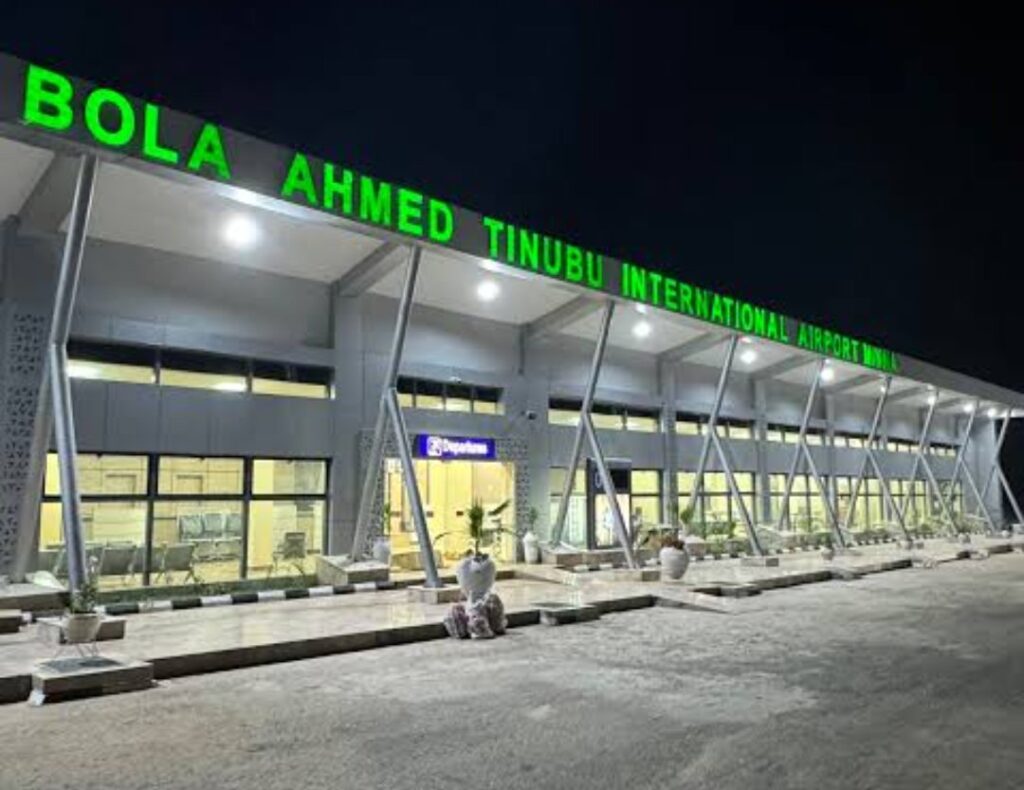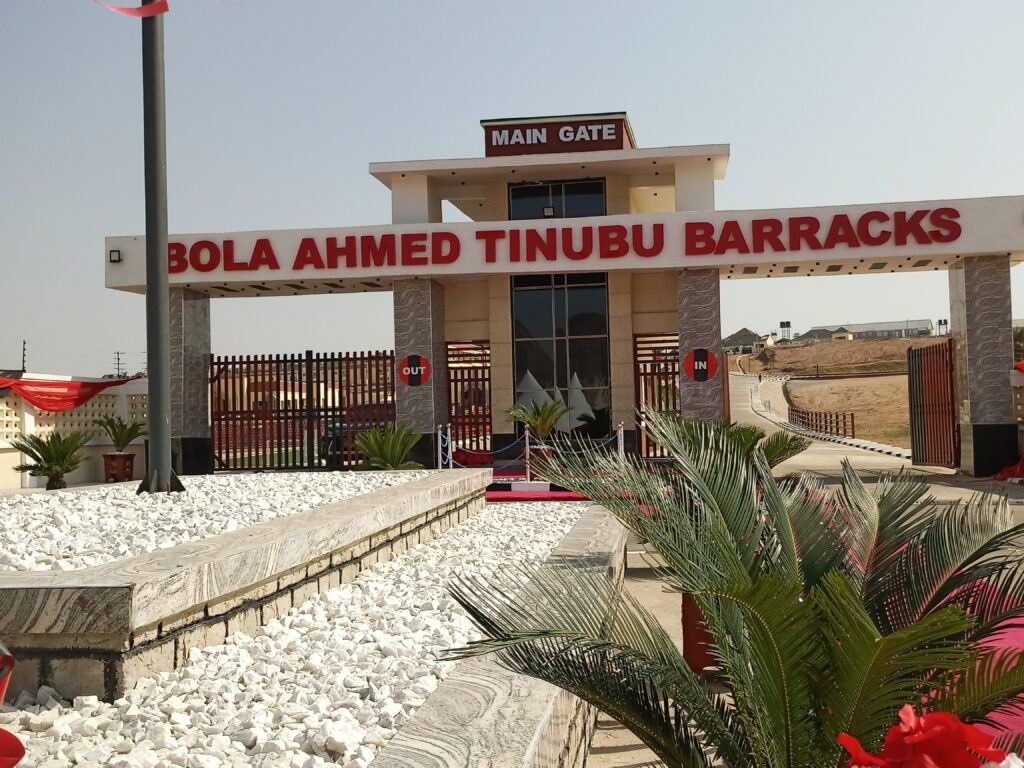Since assuming office in May 2023, President Bola Ahmed Tinubu’s name has been affixed to no fewer than seven major public institutions across Nigeria. The renamings—spanning airports, educational institutions, military facilities, and civic infrastructure—have stirred spirited national discourse, evoking both praise and concern over legacy, propriety, and political symbolism.
The most recent addition is the iconic Abuja International Conference Centre (AICC), which reopened in May 2025 after a ₦39 billion renovation. Though no official gazette has confirmed the new name, government and media references increasingly refer to it as the “Tinubu International Conference Centre.”
A GROWING LIST OF RENAMED INSTITUTIONS
The following are the seven known institutions and infrastructures named after President Tinubu since 2023:
1. Abuja International Conference Centre (Reopened May 2025)

Once a national embarrassment due to disrepair, the AICC was closed in April 2024 following President Tinubu’s public condemnation during an ECOWAS Parliament session. Renovated at a staggering cost of ₦39 billion and reopened in May 2025, the facility has been unofficially renamed after the President. It now features modern auditoriums, digital facilities, and upgraded security.
2. Bola Ahmed Tinubu International Airport, Minna (March 2024)

Originally renamed in June 2023 to honour northern literary icon Abubakar Imam, the airport was rebranded again just months later. Its rechristening sparked outrage among cultural advocates and historians, who saw it as an erasure of local intellectual legacy in favour of political homage.
3. Bola Tinubu Building – National Assembly Library & Resource Centre (May 2024)
In the heart of Nigeria’s legislature, the newly completed National Assembly Library was officially named the “Bola Tinubu Building,” ostensibly in recognition of the President’s push for research-backed lawmaking and digital documentation within the legislature.
4. Nigeria Immigration Service Technology Building (December 2024)

The NIS commissioned a state-of-the-art tech hub for biometric and AI-assisted immigration processes. Dedicated in Tinubu’s name, the complex was hailed by officials as emblematic of the administration’s digital transformation agenda.
5. Bola Ahmed Tinubu Polytechnic, Gwarinpa (December 2024)
This newly approved federal polytechnic, situated in Abuja’s Gwarinpa district, aims to bolster technical education. Its naming came as part of a broader drive to associate educational progress with the Tinubu administration’s policy initiatives.
6. Bola Ahmed Tinubu Barracks, Asokoro (January 23, 2025)

Opened early this year, this military facility was named in honour of President Tinubu by the Nigerian Army. Military leadership cited improved troop welfare and defence infrastructure under Tinubu’s government as justification.
7. Proposed Bola Ahmed Tinubu Federal University of Nigerian Languages, Aba (Bill Introduced October 2024)
Still at the proposal stage, this university aims to promote indigenous language studies and cultural preservation. If the legislative process is completed, it would become the first language-based federal university in Nigeria—and the seventh federal institution named after the sitting President.
LEGAL AND ETHICAL CONCERNS
Experts caution that while there is no constitutional barrier to naming infrastructure after living leaders, doing so while they are still in office can erode institutional neutrality. Universities, for example, typically require an act of Parliament to be renamed—raising questions about due process in some of these decisions.
Moreover, some argue that posthumous recognition fosters a more objective historical lens, enabling society to assess a leader’s contributions without political interference or pressure.
CONCLUSION : SYMBOLISM OR SELF-CANONIZATION?

The growing number of institutions bearing President Tinubu’s name signals a new chapter in Nigeria’s political culture—one where legacy-building is becoming visibly institutionalized. Whether history will view this as deserved recognition or excessive veneration remains to be seen.
As public projects continue to roll out under this administration, FactSphere will keep tracking the evolving balance between governance, legacy, and national symbolism.



